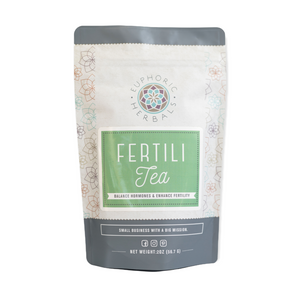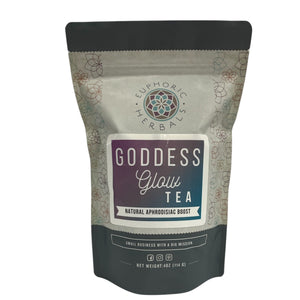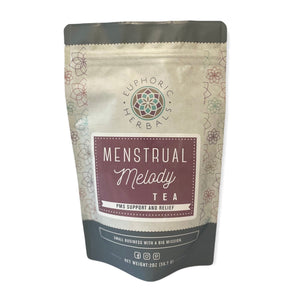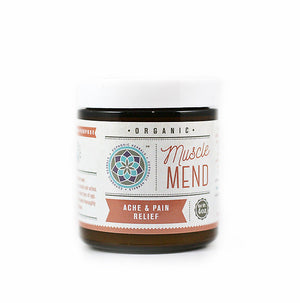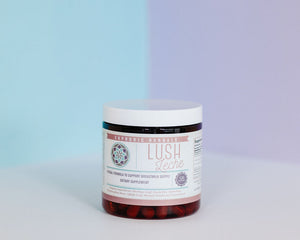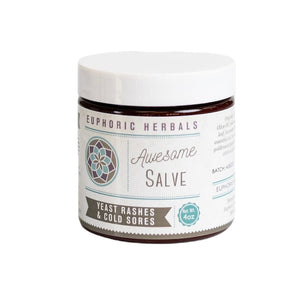It's safe to say that more people are interested in medicinal herbs and how to use them than ever before. Unfortunately, this popularity as well as environmental changes have led to certain native herbs being labeled as "at-risk".
While herbalists once used only what they could grow or wildcraft, most of us now have access to an almost unlimited array of herbs, extracts, herbal supplements, etc. that can be bought locally or online.
This means there's much more of a disconnect between where and how a specific medicinal plant is grown and harvested and the person who eventually uses it.
So what are at-risk herbs and how do you make sure you are buying, growing, harvesting, and using herbs in an ethical way?
That's exactly what this post will guide you through, and becoming more mindful about medicinal plants will only make your herbal journey better!
What Are At-Risk Herbs?
At-risk herbs are medicinal plants that are declining in their native habitats at an alarming rate. They are either considered naturally rare or likely to become rare as the result of human actions.
It's important to note that "at-risk" is not the same as endangered, and most medicinal herbs that are in danger don't have any official protection from governmental or conservation agencies.
Instead, this is a designation that expert herbalists and botanical groups (most notably the United Plant Savers) have created to bring awareness to native medicinal plants that could potentially disappear from the wild.
How Do Medicinal Plants Become At-Risk?

There's more than one way a medicinal plant can become rare enough to be considered at-risk.
Certain plants are considered naturally rare, which means that they have characteristics like a slow growth habit, population isolation, or inefficient seed dispersal that makes their numbers always low in the wild.
Others are becoming rare through climate change and the often negative influence humans have on the environment.
Pollinator decline, for example, affects not just food crops but also wild medicinal plants that become less abundant because of lack of pollination. Habitat destruction is also incredibly detrimental to native herbs and is especially harsh on naturally rare plants.
Another huge blow to native medicinal plants has been the introduction of foreign pests and invasive non-native plants. Invasive plants, especially, can quickly crowd out native ones and cause them to decline rapidly.
The Impact of Popular Herbalism & Supplement Culture
Herbal medicine has been an integral part of cultures all around the world for thousands of years, and the recent revival of interest in medicinal plants has caused many people to discover the amazing properties of herbs for the first time.
Unfortunately, there have also been some major downsides to this newfound popularity.
Manufacturers with no expertise or love for medicinal herbs have started to mass produce herbal supplements simply to make money. Some herbal suppliers stock their shelves with little thought as to where the herbs they are selling came from and how they were grown or harvested.
To make a long story short, this "popular herbalism" has led to native herbs being overharvested in the wild or grown unsustainably (and often with chemicals) simply to catch up with consumer demand.
Now, this is not to say that you shouldn't ever take herbal supplements or use wildcrafted herbs because they can be incredibly beneficial and nourishing when used with respect!
However, it is up to you to be aware of at-risk medicinal plants and make sure any herbs or supplements you use are sustainably collected and produced.
What You Can Do to Protect At-Risk Herbs
Become Familiar with the At-Risk Plants

The first step to protecting native herbs is to educate yourself on which ones are at-risk.
In the U.S., one of the best resources in this area is the 'Species At-Risk List' that can be found on the United Plant Savers website. This list contains in-depth information on each at-risk herb and also lists "to-watch" plants, which aren't considered at-risk yet but are headed in that direction.
If you live in a different country, you'll want to do some research of your own to find out which medicinal plants are at-risk there.
Below are a few examples of herbs native to North America that are considered at-risk. You should NOT forage/wildcraft them and should buy them only from an ethical supplier.
Source At-Risk Herbs Carefully
At-risk medicinal plants should not be foraged or wildcrafted (with a few exceptions), so that means the option left for most herbalists is to buy them.
However, it's incredibly important to source your herbs carefully, especially when a plant is in danger of being overharvested or wiped out.
Look for a local or online herbal supplier who clearly states their commitment to selling sustainably grown and harvested herbs. Ask questions before buying if anything isn't clear to you.
What you should not do is buy the cheapest version of an herb you can find on Amazon or a random website. This type of fast, cheap herbalism is what is contributing to more medicinal plants becoming at-risk.
If you don't already have a trusted herbal supplier, Euphoric Herbals is proud to carry organically grown and ethically wildcrafted herbs, teas, and herbal supplements.
Use Substitutes When Possible

Another great way to protect valuable medicinal plants is to find substitutes for at-risk herbs that work just as well for your situation.
This may not always be possible, but it's often easier than you would think and has the bonus of expanding your knowledge of herbs and herbal medicine.
Obviously, you'll need to do some research based on the specific herb you are looking to replace, but here are a few examples to get you started:
- Marshmallow root in place of slippery elm
- Astragalus, elderberry, or medicinal mushrooms in place of echinacea for immune support
- Barberry in place of goldenseal
- Yarrow or motherwort in place of black cohosh
Consider Growing Native Herbs
If you have a green thumb, consider adding some native herbs to your garden. Not only will this give you a fresh source of potent medicinal plants, it will also help at-risk species to continue surviving!
Start by doing a little research to find out which herbs are native to where you live. Then, try to match the growing conditions you have in your outdoor space with plants that will thrive in those conditions.
Use Herbs Mindfully & With Respect
One of the best ways to protect at-risk medicinal plants and cultivate respect for herbs in general is to mindfully grow, buy, harvest, and use only what you need.
The commercial herbal movement is all about filling your cupboard with numerous herbal supplements, some of which you may use once and then forget about.
This is immensely different from traditional herbalism, which teaches respect for the plants that we use medicinally and recognizes that we have an important relationship with these plants-- and a responsibility to protect them.
Consider carefully what you really need before you buy, and buy from an ethical supplier. Harvest or forage non-threatened plants with care. And appreciate the herbs that do make their way to your home!
Saving At-Risk Medicinal Herbs
Life could not exist without plants, and there are so many that enhance our wellbeing in multiple ways as medicinal herbs. It's only fair that anyone who benefits from these plants should be concerned about their wellbeing, too.
If you've never explored the issue of at-risk medicinal plants, now is the time to do so!
It's vitally important to saving many valuable native plants and will only deepen your relationship with herbs and botanicals going forward.
Disclaimer: This post is for informational purposes only. It does not constitute medical advice and should not be substituted for medical advice. Please consult your health care provider, herbalist, midwife, or naturopathic physician before taking herbs, supplements, etc. Here's the link to our full disclaimer.






















































